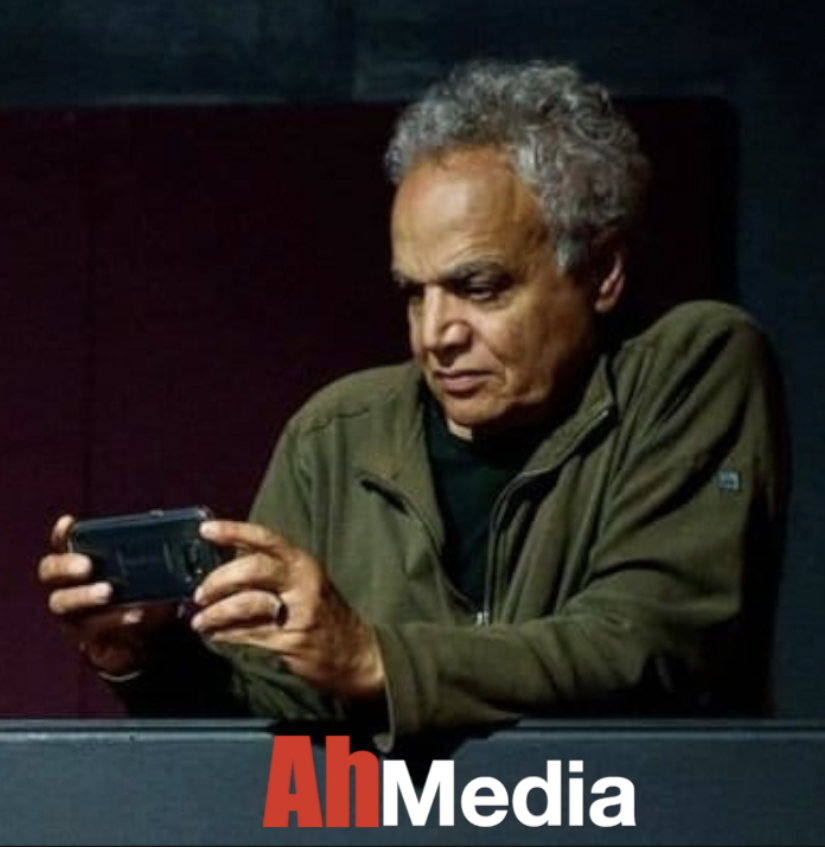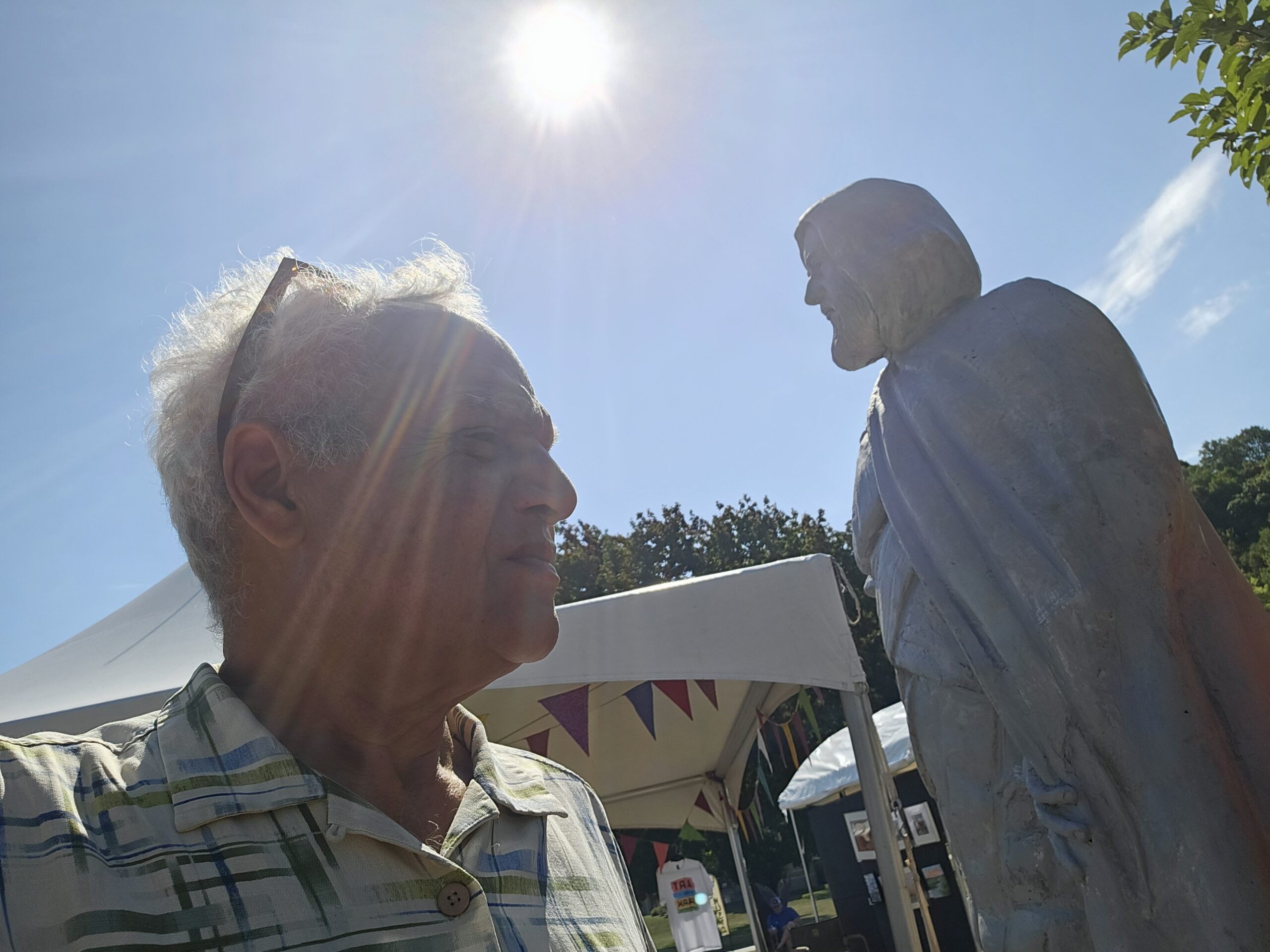Why is a northern Iowa town named for an Arab/Muslim hero?
There are almost 20,000 cities incorporated in the United States. Elkader, Iowa, may be the only city in America named after an Arab Muslim.
Emir Abdelkader was a young Algerian hero who fought French settlers for almost 20 years in the mid-19th century. How did a small town in the northeast corner of Iowa get a name like Elkader, a name that in the post-9/11, post-Trump era could get you kicked off a flight? I have a friend who, after 9/11, changed his name from El-Kader to Randy to avoid trouble at the airport and the hassle of spelling it out every time he orders coffee at Starbucks.
The tale of Elkader, the farm town, started in 1845 when a British settler, Timothy Davis, was looking for a site for a new settlement along the Turkey River. Davis had learned the story of Emir Abdelkader in an American newspaper, which was sympathetic to the Algerian revolt against colonial rule. So Davis named his new town Elkader.
More than 170 years later (last month), Art in the Park, an annual art festival in Elkader, revealed for the first time Emir Abdelkader’s sculpture. While some Americans tear down old historical statues for their dark, criminal, racist histories, here in Elkader, Iowa, they’ve just erected a statue of a Muslim hero for his humanity and tolerance.
The festival was held in the Founder’s Park, alongside the Turkey River in historic downtown Elkader. I took my camera and went to do a story about the Muslim hero who brought Islamic exotica to the American heartland. I drove for hours through the cornfields, where road signs change from McMeals, and having it your way to Jesus loves you is the only way. Finally, I got to Elkader, where it was almost empty — not a single stoplight or a police car to be seen. My first stop is at the City Hall in the Opera House to meet Josh Pope, Elkader’s mayor, in his second four-year term —a relatively young, enthusiastic, and accessible. I asked him what he could tell me about his town, Elkader.
” Our town’s character represents what Emir Abdelkader stood for tolerance, kindness, and humanity,” he explained. I asked Pope about any recriminations or reactions since 9/11 and all that has followed the town’s Arab/Muslim name. “We are a small town of simple people,” he answered. “We like our land and our freedom; we don’t have the clash of ethnicities you may find in big cities like New York and Chicago.”
The mayor has visited Elkader’s sister city, Mascara in Algeria, welcomed by dignitaries, parades, and posters everywhere. They even post his picture in the streets with images of the Algerian president.
I asked him if the people of Elkader knew the story behind their town name. “Of course they do,” he said. “You don’t have a namesake like Elkader and not know the emir.” Then I asked the mayor if any Muslims live in Elkader. He looked around, hesitating, “if there is, they are nonpracticing Muslims.” Maybe that’s because there’s no mosque in Elkader. But Cedar Rapids, Iowa, has the oldest mosque in the U.S., the Mother Mosque of America, completed in 1934.
Next, I met Kathy Garms, founder of the Elkader Education Project, who has lived all her life in Elkader. Full of energy and personality, she loves to talk about her trips to Mascara, where the Muslim hero was born. She explained that she was treated like a royal, meeting the Algerian ambassador. “They put out the red carpet for me, and I stayed in a mansion, with lavish meals and private visits.”
“You don’t learn much about Algerians at the mansion,” I ventured.
She laughed. “Yes, it’s very different over there. Everything I do here is public; over there, it was all private.”
Garms talks about her passion for telling Elkader stories and keeping them alive, specifically in the new generation. At Elkader’s Carter House Museum, she showed us a collection of Algerian dresses, costumes, and artifacts she brought from Algeria and donated to the museum. Asked how she got so interested in all this, she explained: “I read John Kiser’s book, ‘Commander of the Faithful.'”
She learned about Abdelkader, an Islamic scholar from Algeria who fought French colonialism in the mid-19th century. The Emir was known not just as a freedom fighter but for his Islamic scholarly works and humanity in dealing with his enemies and saving thousands of Christians during a civil war in Damascus. The Emir’s courage earned him global acclaim. President Abraham Lincoln eulogized him. “As long as I live, I will tell the Elkader story,” Garms said.
At the Art in the Park festival, hundreds of people with their families wander around looking at Art, eating food and ice cream, and listening to music. I spoke to Artist Jillian Webb, co-founder of Art in the Park, who came to Elkader 10 years ago and formed a community of arts together. “This year, we are so excited to have this monument to open a conversation about the world and Emir’s life and values, in particular,” she said as she pointed at Emir Sculpture. A couple of young girls are walking by the Emir Sculpture, wondering about the Emir Story. I met Tamar Miller, a lovely Jewish woman from the I Am Your Protector organization, a community of people who stand up for one another across dimensions of religion, ethnicity, gender, and sexual orientation. She helped in bringing Abdelkader’s sculpture to Elkader.
Standing next to Abdelkader’s sculpture with posters of ordinary people she brought, Miller said, “These people should also be on pedestals.” The posters showed refugees rescuing Italians after an earthquake; two sanitation workers saving a kidnapped 10-year-old girl; a news story headlined “Dreamer saves lives during Houston floods”; Syrian refugees distributing water to residents in Flint, Mich.; a Jewish patrol protecting London mosques.
Miller shared many ideas and hopes; we both have one thing in common: throughout the three days we spent at Elkader, we starved, where they mainly served pork. We ended up at Gear Coffee House, a place with great vibes and the best espresso I ever had. The owner, Mike McShane, learned the secret from an Italian friend.
I asked McShane what he thinks of his town being named after a Muslim hero. “My distant family is Irish, and we know British oppression, so naming my town after a freedom fighter is great,” he explained.
There were a few Algerian visitors at the Art in the Park festival. They came to see their Algerian hero being honored thousands of miles from home. “I came here as an Algerian to connect the Emir’s values with Americans.” Said Sameer, who came from the Twin Cities. I asked Fouzi, standing next to him, If folks back home in Algeria knew about this American town named after the Emir, “No, …, maybe they’ve seen it on the internet or YouTube,” he explained.
Finally, I talked to a man in a wheelchair, Shade Kramer, an 84-year-old Native American who had been Elkader’s postmaster for many years before he retired 35 years ago. When some Algerian delegates visited Elkader, he gifted them a book of stamps to take home. He has three sons and eight grandchildren. Do you tell them the Elkader story “They knew it, they remember it?” “My father Kramer was the only one alive carrying our family name; “during WWII, they didn’t take him to the Army; they sent him to work in a factory in Illinois instead,” I asked him. As a Native American, what does he think of a British settler naming his town after a Muslim who fought French settlers in Algeria for years? ,” Do you see any Irony? After repeating my question a few times. “I’m 84 years old, not active these days. But I don’t see any issues with that,” Mr. Kramer answered with no sense of bitterness.
Ahmed Tharwat, host and producer of the Arab American TV show BelAhdan, is working on a film documentary, “The Coptic Grave.” He lives in Minnetonka.
Blog @ahmediatv
Follow him at @Twitter/ahmediatv
Read it at the StarTribune

